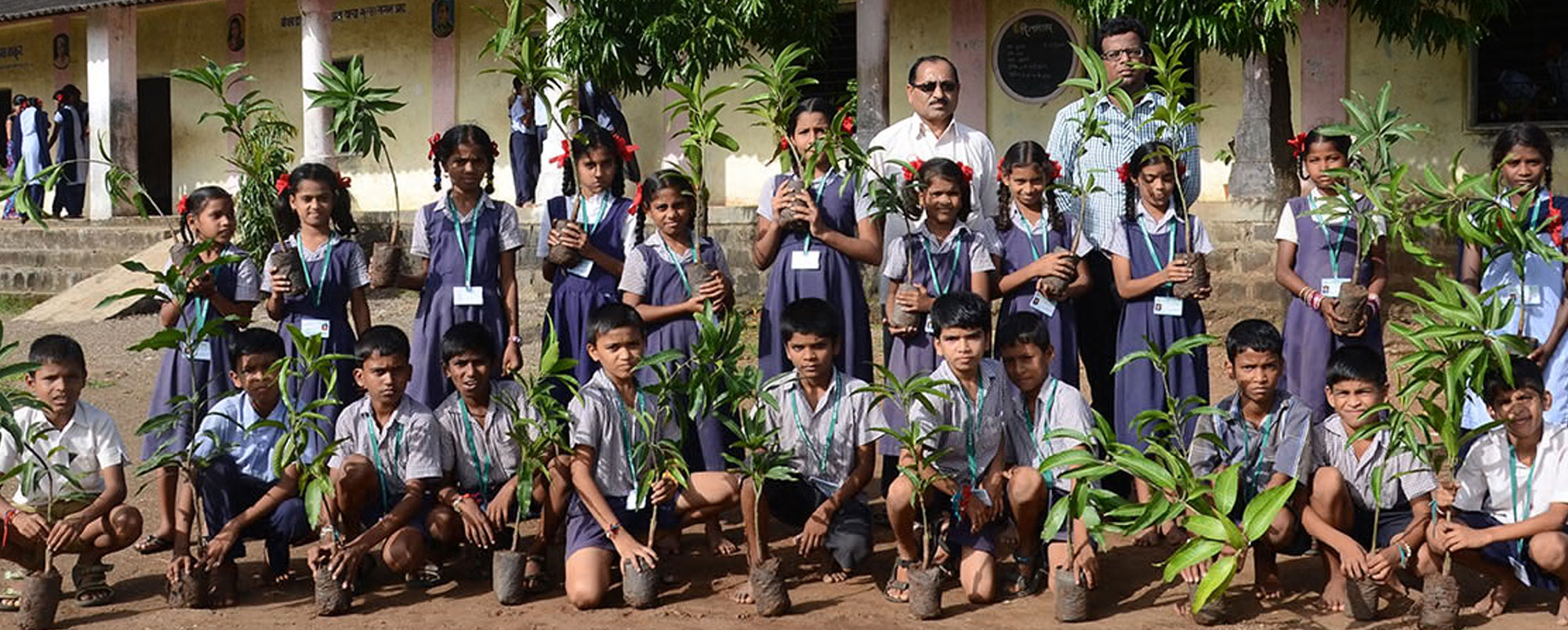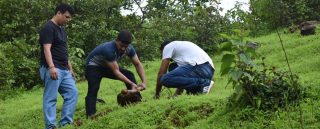Fruit of the soilIt’s a tough challenge to balance the goals of environment preservation and community empowerment; Maitree’s success story shows how this can be achieved
The Hindi word Maitree stands for friendship, and compassion and kindness. Maitree could also be the name of a girl, a typical member of a community living in an economically backward and tribal area, someone who has no access to good education or health facilities, whose family is dependent on agricultural income. To make her life better, it is necessary to help raise the standard of living of her family as well as the community she lives in.
This idea was the genesis of the Maitree initiative started by the Avvashya Foundation when it set out to empower people living in rural and backward areas of the state of Maharashtra in India. The route taken by Maitree is unusual – via mass campaigns for fruit tree plantation.
The Maitree initiative aims to empower communities by involving them in planting trees that will provide sustainable livelihoods. Fruit bearing trees are planted which will add to the family income when the produce is sold in the market. Thus, Maitree bears several sustainable fruits – it helps increase green cover, reduces carbon impact and provides income generation options. However, the underlying principle is to empower rural families so that they can participate in the growth and development story of mainstream society.
A scheme that bears fruit
Maitree conducts tree plantation drives at several places, including Karjat in Raigad district, and Jawahar and Mokada in Thane district. The first step in the plantation drive is to understand the habitat, through land surveys, assessment of soil, climate, etc. This helps identify the types of fruit saplings that would be compatible in the region. Maitree works with 12 varieties of fruit bearing trees, such as mango, cashew, custard apple, etc.
Beneficiaries are identified by partnering non-profit or social organisations who are already active in the area and working with local communities, such as Light of Life Trust in Karjat, and Maharashtra State Rural Livelihood Mission in Jawahar. The trees are planted by the beneficiaries along with employees of Avvashya Foundation.
The foundation’s engagement does not end with handing over saplings to farmers. The Maitree team also provides guidance on good agricultural practices by bringing in agricultural experts. Co-operative societies are formed to help the farmers sell their produce at good rates.
Green benefits
Nilratan Shende is deputy general manager (CSR), at Avvashya CCI, the parent company of Avvashya Foundation. He explains the bigger vision for the programme: “With Maitree, we plan to achieve a two-pronged goal, to increase the income of farmers and to play our part in reducing global warming.” Studies estimate that, in a year, a large tree absorbs 20.3 kgs of carbon dioxide and generates enough oxygen for a family of four. By planting more trees, Avvashya Foundation is doing its bit to offset carbon emissions.
The success of Maitree can perhaps be quantified by the large numbers of trees it has planted — about 229,000 trees in the last few years. The vision is to plant 1 million trees in the next five years. To motivate the local communities to participate in this drive, Maitree encourages and incentivises them to grow trees. So far, 5,500 farmers have benefitted from this initiative. “The biggest achievement of this project is reaching the most deserving communities, who, until now, were ignored. This promotes inclusive development,” says Mr Shende.
To give Maitree more bite, an effort is being made to enlist government support for this project through the Mahatma Gandhi National Rural Employment Guarantee Act(MGNREGA). Under the Act, 100 manhours of paid work are guaranteed to any adult who lives in rural areas and has applied for employment. If the tie-up with MGNREGA fructifies, the activity of planting and tending to trees will be considered as a productive economic activity and will be remunerated by the government. The additional government incentive will help drive greater involvement of farmers.
Not an easy job
Maitree has been a model project which has combined environment preservation with emancipation and empowerment of people living in economically backward areas. However, it has had its own challenges. In the initial days, there were apprehensions and reservations among the tribal communities when they were approached with details of this project. It took time and the active support of local NGOs to transform resistance into co-operation. Today, several local communities are fully engaged with the Maitree initiative.
Avvashya Foundation dreams about Maitree becoming a mass movement with other companies also joining this initiative. It visualises this initiative becoming a movement to alleviate the sufferings of the hitherto ignored under-developed sections of the society. When this happens, a girl named Maitree in some far-flung village of India will no longer need to sacrifice her right to proper education and growth.














